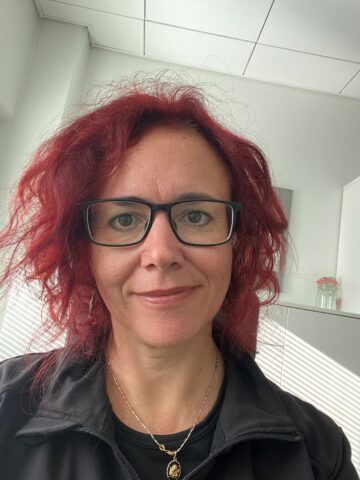People
 Miriam Tedeschi is AgenDa’s Principal Investigator (PI). She is a senior researcher at the Faculty of Law, University of Turku. She is also docent in human geography, with specialisation in non-representational theories, at the Department of Geography and Geology, University of Turku. Her research focuses on the multiple relationships between humans and the different spatio-techno-legal configurations they embody. More info about the PI can be found on UTU website and her previous project’s website, ‘Justice in Digital Spaces’ (JuDiCe).
Miriam Tedeschi is AgenDa’s Principal Investigator (PI). She is a senior researcher at the Faculty of Law, University of Turku. She is also docent in human geography, with specialisation in non-representational theories, at the Department of Geography and Geology, University of Turku. Her research focuses on the multiple relationships between humans and the different spatio-techno-legal configurations they embody. More info about the PI can be found on UTU website and her previous project’s website, ‘Justice in Digital Spaces’ (JuDiCe).
AgenDa puts together and harmonises different disciplines: feminist digital geographies, relational philosophies, socio-legal studies, design justice.
To do so, AgenDa continues the national and international cooperation started with the previous project, JuDiCe, with:
- Faculty of Law, University of Turku, Finland (AgenDa’s main research environment):
- Prof. Anne Alvesalo-Kuusi has been part of the Strategic Council of Finland-funded project ‘Intimacy in a data-driven culture project’ (IDA). The project has studied the impact of data on everyday social roles and relations, also bringing to light the vulnerabilities that such impact generates.
- Prof. Mika Viljanen has specific expertise in law and Artifical Intelligence (AI) agency. He has been the PI of the the Research Council of Finland-funded project ‘Algorithmic Agencies and Law’ (AALAW), and worked in the Strategic Council of Finland-funded project ‘Towards ethical use of AI’ (ETAIROS).
- Turku School of Economics, University of Turku, Finland:
- Associate Professor (tenure track) Johanna Hautala is a leading scholar in geographies of knowledge creation. She runs the Research Council of Finland-funded project ‘Being(s) There(s). Geographies of Knowledge Creation Processes in Extended Spaces and Times’ (BETH), regarding human–technology interactions and the agency of other non-human ‘beings’ in the era of AI.
- Department of Geography and Geology, Geography section, of the University of Turku, Finland:
- Dr. Katri Gadd is PI of Kone-funded project ‘Human Rights Incorporated and Acquired’ (HuRiIA), where non-Western conceptualisations of agencies are explored with a group of Iraqi women living in Finland.
- JUSTSPACE research group, Faculty of Social Sciences, of Tampere University, Finland:
- Prof. Päivi Kymäläinen is a prominent legal geographer, focusing on the intersections between spatiotemporalities and experiences of (in)justice in everyday life. She runs several projects, including the Kone-funded project ‘Space, Justice and Everyday Democracy: The Limits of Language and Urban Marginality’.
- The Westminster Law and Theory Lab, University of Westminster, London, UK:
- Prof. Andreas Philippopoulos-Mihalopoulos is an internationally renown legal scholar and artist. In his academic work, he has successfully combined environmental law, human geography, relational philosophies, and posthumanism in the development of a new definition of spatial justice, including its recent ramifications into datafied environments.
- School of Information Technology, Department of ISDD (Intelligent Systems and Digital Design), Halmstad University, Sweden:
- Andrea Resmini is associate professor of experience design and information architecture at Halmstad University, Sweden, and researcher at the Games, Art, Media and Experience (GAME) Research Lab, University of Skövde (Sweden). He is a world-leading scholar in pervasive information architecture, i.e. an information-based framework for the analysis and design of physical/digital experiences, and in the Design Game Framework (DGF).
- Dimitrios Gkouskos is associate professor in design research and user experience at the ISDD, School of Information Technology, Halmstad University. He is an expert in design education and technology for ethics and well-being.
- Northeastern University, School of Law, NuLawLab:
- Dr. Jules Rochielle Sievert is Creative Director of the NuLawLab and Co-Director of the Legal Design Certification Program. They have decades of experience working across disciplines, including art, design, Participatory Action Research (PAR) methods, datafication, and legal design literacy.
